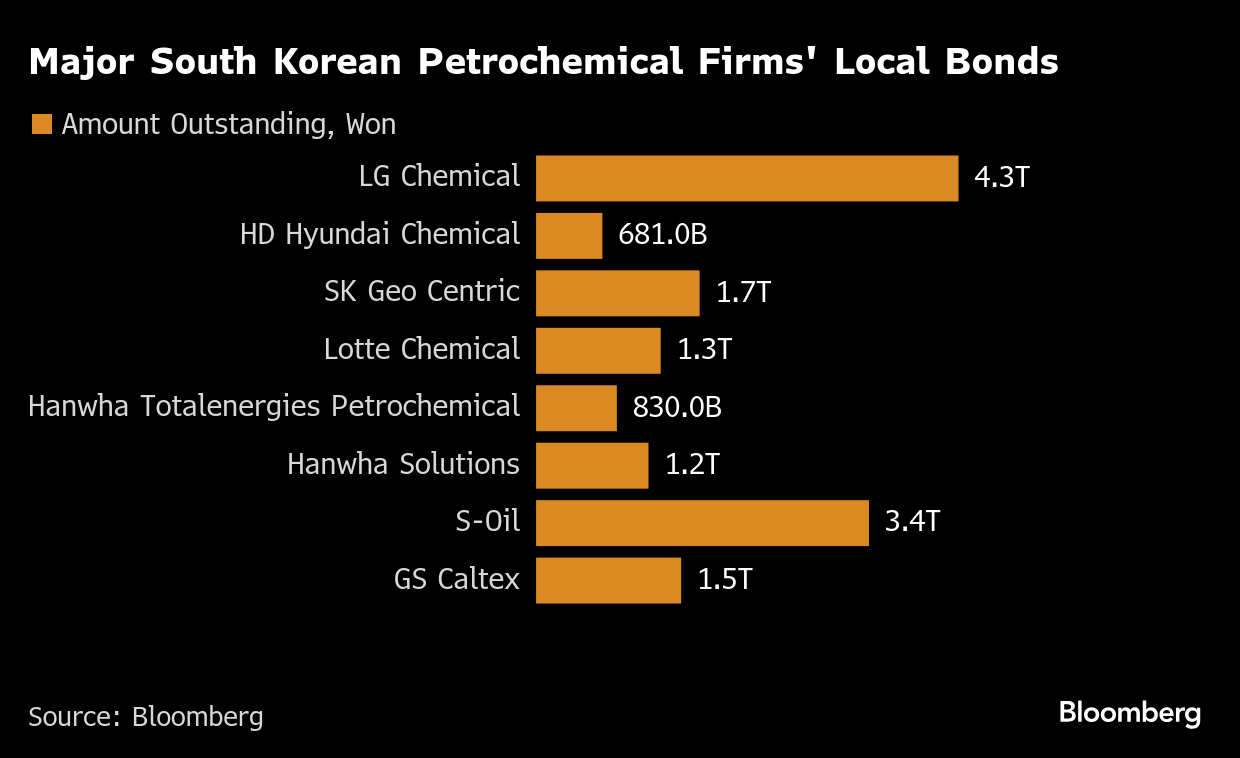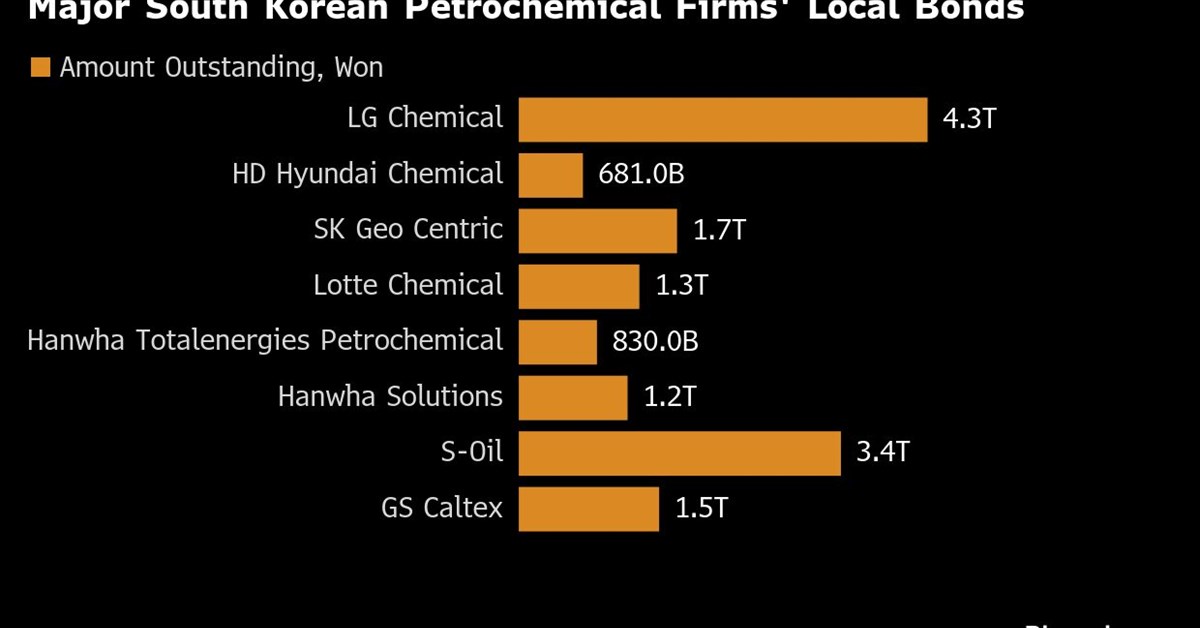(Bloomberg) — A near-default by a major player has become a flashpoint for South Korea’s struggling petrochemical industry, intensifying concerns over corporate debt and prompting government calls for restructuring — with hints of possible intervention, if needed.
Authorities are prepared to act if necessary, according to a financial regulatory official familiar with the matter. The government’s 100 trillion won ($72 billion) market stabilization program — implemented in past crises, including an incident involving a Legoland amusement park in 2022 — is on standby to be used, though officials haven’t seen signs of market contagion, the person said.
Petrochemical firms, a key export sector, have been under pressure in recent years from a global supply glut and aggressive capacity expansion in China, which have eaten into margins and led to plant closures. With a wall of bond maturities looming, the government’s urging for major companies to restructure operations and debt — and their agreements to do so — suggest the industry may be getting serious about reform. More than 3 trillion won in local bonds from those companies come due in the next year, according to Bloomberg-compiled data.
“The recent developments are definitely posing a risk,” said Earl Shin, head of investment strategy at Sangsangin Investment & Securities. “Considering the weakened business environment, a single default could have ripple effects.”

The issue came to a head last month when Yeochun NCC Co., one of Korea’s largest ethylene producers, faced a near default until it secured emergency financing from major shareholders. The event partly prompted the government to summon 10 major players on Aug. 20, including LG Chem Ltd. and Lotte Chemical Corp., to discuss restructuring plans.
During the meeting, the companies agreed to cut their capacity for naphtha cracking — a key process in plastics production — and submit detailed plans by year-end. Together, they hold about 15 trillion won in outstanding local bonds and another $7.4 billion of dollar bonds, according to Bloomberg-compiled data.
Investor caution has been building for months amid sluggish performance, concerns over potential defaults, and a string of credit rating downgrades. Yeochun NCC — a joint venture between Hanwha Solutions Corp. and DL Chemical Co. — still faces about 280 billion won in bonds maturing by the end of next year, according to Bloomberg-compiled data.
“Concerns about corporate debt repayment will continue to exist,” said Sangin Kim, credit analyst at Shinhan Securities. “If corporate bond issuance gets essentially blocked, companies will face difficulties in financing.”
‘Stand Still’
In line with the Aug. 20 meeting, Finance Minister Koo Yun-cheol said the government plans to prepare a comprehensive set of measures to support the industry, including deregulation and financial and tax initiatives, if companies’ restructuring plans are deemed sincere.
The Financial Services Commission, a market regulator, also said banks and others have agreed in principle to provide “joint creditor agreements” when they’re necessary and adopt a “stand-still” approach – such as holding off on demanding repayment of existing credit – to give petrochemical firms breathing room.
Many of these companies are backed by large conglomerates, which could offer additional support, said Sang-man Kim, credit analyst at Hana Securities. Still, financing won’t be easy, he said.
“It won’t be easy to repay the debt through public offerings,” he said. “These firms will likely tap into private debt, short-term commercial papers, or seek support from its affiliates via guarantees and collateral.”
©2025 Bloomberg L.P.
